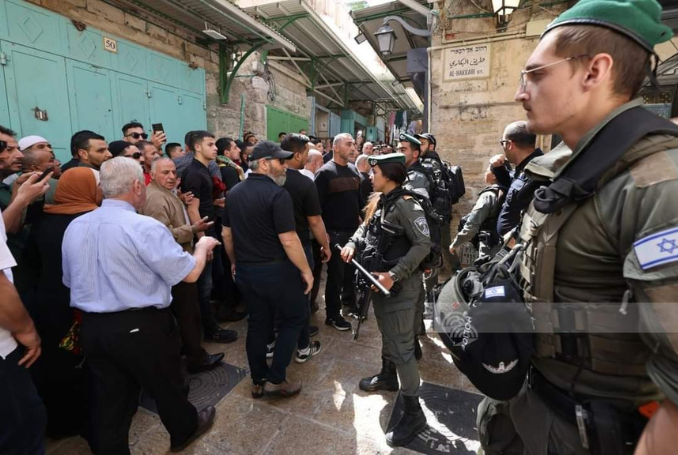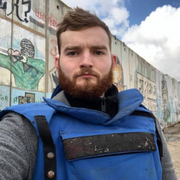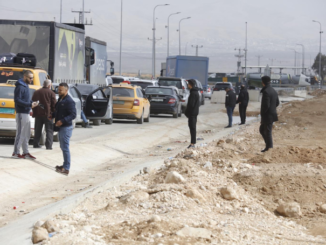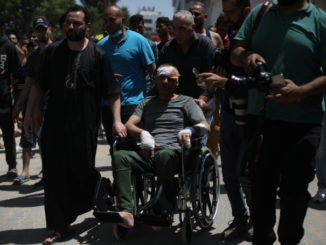
As Ramadan approaches, tensions around Al-Aqsa Mosque, a symbol of Palestinian nationalism, could once again ignite widespread conflict.
As the Muslim Holy month of Ramadan approaches, Al-Aqsa Mosque could once again become a focal point of the conflict in occupied Palestine, after the focus has for some time shifted away from the ongoing threats to its status.
While it is a fact that has been drowned amongst the sea of information spread about the genocide in Gaza, the Israel-Lebanon war, and assaults on the West Bank, the Hamas-led October 7 attack of 2023 was inextricably linked to Israel’s attacks on Al-Aqsa Mosque in occupied Jerusalem. The operation, planned and spearheaded by the Hamas armed wing, al-Qassam Brigades, was even named “Al-Aqsa Flood”.
Conversations surrounding the war in Gaza are often fit into two primary historical frameworks: There are those who claim that history started on October 7, 2023; while others argue that the issue should be traced back to 1948 or even prior, sprinkling in some statistics of what was happening during the year before the war.
While the latter explanation is undoubtedly the more informed and accurate, analysts and activists alike often miss a key milestone in the course of the conflict that directly led to the decision of Hamas to launch its offensive.
In May of 2021, a mass “unity uprising” bringing together the people of the West Bank, East Jerusalem, and Palestinian citizens of Israel, occurred following a month-long series of assaults, incitement, in addition to crackdowns inside and surrounding Al-Aqsa Mosque.
The uprising had been long brewing, as Israeli occupation forces continually clashed with Palestinians who gathered during the evenings at the Bab al-Amoud (Damascus Gate) entrance to Jerusalem’s Old City.
Israeli forces set up a checkpoint there and imposed restrictions on Muslim worshippers from reaching Al-Aqsa Mosque throughout the Holy Month of Ramadan, while also assaulting Christian worshipers at the Church of the Holy Sepulchre.
In conjunction with this, Israeli settler groups launched multiple “death to Arabs” marches in the city, as Israeli occupation forces worked to ethnically cleanse Palestinian families from their homes to make way for settlers to occupy them, also demolishing countless homes in the city.
The neighborhood of Sheikh Jarrah, in East Jerusalem, where settler extremists were taking over Palestinian homes, became a central element in the tensions, culminating in war on May 10, 2021.
On that day, Israeli forces had injured hundreds of Palestinians in and around Al-Aqsa Mosque, while a “death to Arabs” settler march was planned to enter the Al-Aqsa compound. Hamas then issued an ultimatum to Israel, stating that it would respond if the occupation forces did not withdraw from the area and cancel the settler march by 6:00 PM that day.
Despite the settler march being called off, a group of right-wing Israeli extremists still paraded through the streets, as the occupation forces continued their assaults. Hamas fulfilled its pledge to respond and fired rockets towards Western Jerusalem and later Tel Aviv, initiating an 11-day war between Israel and Gaza.
This conflict was pivotal, not only in motivating Palestinians in the West Bank to begin forming their own armed groups for the first time since the Second Intifada (2000-2005) but also in shaping the mentality of both Palestinians and Israelis going forward.
The Israeli settler movement, incorporated into which is the “Temple Mount Movement”, began escalating its efforts to break the status quo at Al-Aqsa Mosque. Their intention is to destroy the Holy Site and build a Jewish Synagogue in its place.
Al-Aqsa is technically under the honorary custodianship of the Hashemite Kingdom of Jordan, which even deploys its guards inside the compound. The security arrangement at the site is that Israeli forces are deployed surrounding the Holy Site, while Jordanian Waqf forces are deployed inside. The compound is supposed to be constantly open to Muslim Worshippers, while tourists can visit through a designated gate at times that don’t coincide with the five daily prayers.
Israeli occupation forces, politicians, and settlers have decided to repeatedly violate the status quo, raiding the compound at any time of their choosing and when Palestinians resist they use force, sometimes lethal.
In early 2023, a UN Security Council meeting was called over the issue, after Israel’s security minister Itamar Ben Gvir stormed the Holy Site, declaring Israeli sovereignty over it. The notorious racist, Ben Gvir, is notably a West Bank settler himself who idolizes the infamous terrorist Baruch Goldstein, who committed the mass shooting at the Ibrahimi Mosque in Al-Khalil.
The mosque massacre murdered 29 Palestinian worshippers as they prayed and injured 125 others, the incident then led to a violent Israeli takeover of the mosque, which is the second most important Masjid in Palestine.
More than half of the Ibrahimi Mosque was taken over by Israeli settlers from Ben Gvir’s illegal settler community, who turned it into a synagogue by force. When you visit the mosque as a Muslim today, you are forced to go through a layered checkpoint and are questioned first.
Even to this day, there is a continued push to create a similar reality at Al-Aqsa as exists at the Ibrahimi Mosque, dividing the site, while other Israelis advocate for its total destruction.
Each Ramadan, following the events of 2021, the Israeli settler extremists continue to work alongside the occupation forces to restrict the movement of worshippers, attack them, and destroy Palestinian stores in the Old City, in addition to the demolition of homes, alongside defacing of graves and churches.
In 2022 the leader of Hamas in Gaza, Yahya Sinwar, delivered a speech during the Muslim Holy Month that year, vowing that “the war will occur after Ramadan” and repeatedly spoke of a “flood” that was coming in response to the violations committed at Al-Aqsa Mosque.
In 2023, the Israelis continued to behave in the same way during Ramadan and faced considerably less popular resistance from Jerusalemites who had been subjected to various crackdowns and arrest campaigns to round up potential protest leaders in the city.
Last Ramadan, the Palestinians in occupied Jerusalem suffered in silence, likely fearful of the potential reprisals should they protest against the Israeli “death to Arabs” marches and restrictions placed on worship at Al-Aqsa.
Another element at play was that the Israeli occupation forces were attempting to act carefully as to not let the unrest they would cause turn into a revolt in the city again; which would have posed a major threat to them during the Gaza war.
This Ramadan, which is expected to begin in late February, it appears as if the Israeli settler movement is poised to make a real statement over Al-Aqsa, especially following the ceasefire agreement with Gaza.
If the situation there escalates dramatically during Ramadan, it could end up triggering major unrest and yet again make headlines.
While Arabic media coverage of the Gaza war repeatedly used the Hamas title for its battle, Al-Aqsa Flood, to describe the military operations against Israeli forces, whether they be in Gaza, the West Bank, Jerusalem or elsewhere, the English-speaking media coverage did not.
Yet, the absence of this title, which is what every Palestinian group referred to the war as, does not remove the centrality of Al-Aqsa Mosque as a primary motivator behind the actions taken by the Palestinian armed factions.
Al-Aqsa Mosque is a symbol of Palestinian nationalism as well as being the third holiest site in the Islamic faith, making it the compass of the cause for national liberation. The events of 2021 had a direct impact on the conflict’s trajectory in occupied Palestine and the centrality of Al-Aqsa Mosque in the Palestinian struggle cannot be ignored.
(The Palestine Chronicle)

– Robert Inlakesh is a journalist, writer, and documentary filmmaker. He focuses on the Middle East, specializing in Palestine. He contributed this article to The Palestine Chronicle.








Be the first to comment